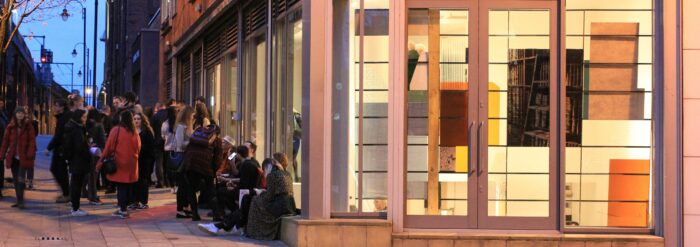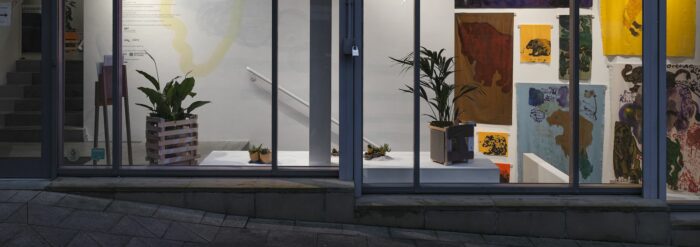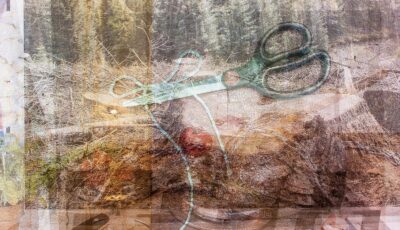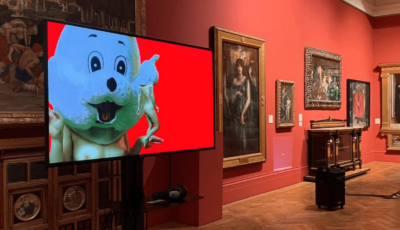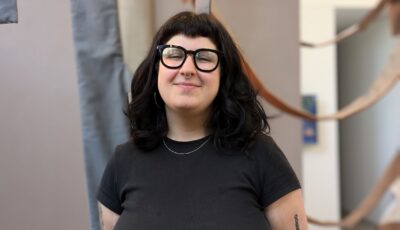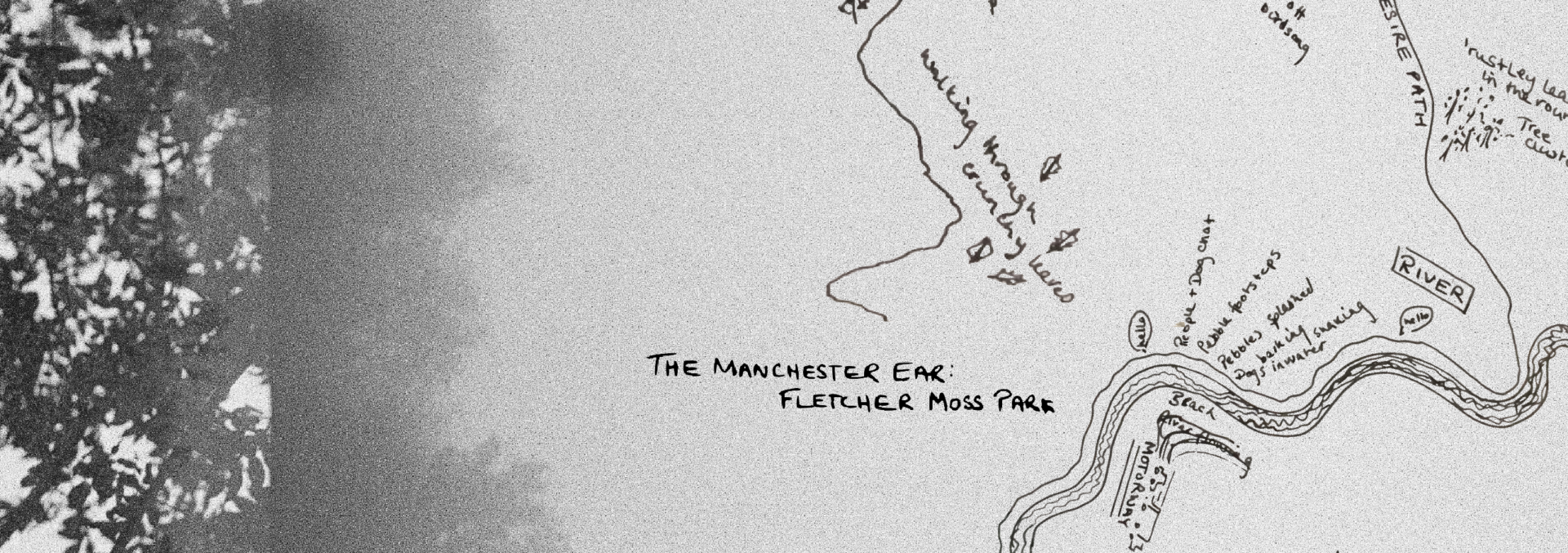
Spotlight: Artists and Sustainability – The Manchester Ear
Posted on 23 February 2022
This month we have asked The Manchester Ear, whose aim is to get people involved with listening to the environment through monthly excursions in and around Manchester to contribute to our series Spotlight – Artists and Sustainability where we are asking artists to share short responses about their work and how it might relate to climate change.
—
In what ways do you feel your work might relate to issues of climate change and sustainability, in the content of the work, its narrative, conceptually or theoretically. How might it speak to or challenge public discourse?
We don’t see Climate Change as a monolithic freestanding issue. Instead, it is entangled with plethora of political, social, cultural, ecological and economic issues and is symptomatic of a failing system. We have explored ways to engage with this issue in our individual artistic practices – creating explicitly political/educational works, using concerts, music within protest settings etc.
As the Manchester Ear we don’t often talk explicitly about climate change in our work (and I’m not sure how useful this is sometimes). However, an understanding that climate change and ecological breakdown is inextricably linked to the way we live our lives, underpins much of our artistic practice. Our work aims to engage people with their real, lived environment; to ask questions about the way we are living; what are we taking for granted? We’re saying “Wait a minute, let’s take a moment to listen to this place we call home. What have we got? And do we like it? Should we imagine something else?”
This inevitably engages with a multitude of intersectional issues (land access, acoustic ecology, identity etc.) many of which have entangled connections to the issue of climate change. Talking about these and learning from each other, helps us to unpick presumptions about our relation with the rest of the living world.
With regards the materials, processes and techniques you use to produce your work, are there any practical decisions you make with regards climate change and sustainability?
This is the exciting thing about sound walking – It’s so sustainable! And more than that – it’s regenerative.
We are working with a medium that is process based. There is no material product. There is no embodied carbon (apart from people getting to the walk and the food that was grown to fuel their muscles). We are reframing the every day to facilitate an experience; an opportunity to see (hear) our environments and bring people to come together and talk about how we want to live.
We have actively decided to work in our local ecologies and communities. On an immediate level that means we aren’t traveling very far – most of our walks are less than a 30minute cycle journey away. More than this though, by engaging people with what is happening on their doorstep we hope to encourage a form of active citizenship – a form of direct democracy.
In general, how do you feel galleries, art spaces, artworks and artists, might be able to contribute, what if any role do you feel they can play in a progressive conversation?
Creating and facilitating art can be a very radical act in a system that is intent on “business as usual” feeding unending growth. We need to ask ourselves what art is? who is it for? and what is it achieving? We think Carmen Salas says it well in her article from May 2020:
“Imagine art which is capable of rekindling values of care, kindness, compassion, action-taking, social justice and cooperation. I’d like art to take a larger social dimension. Art isn’t about stagnation, conformism, fear. Art is about risk taking, resistance, empowerment and transformation.”
carmensp.medium.com
Are there any tips or advice, anything you have learnt you might want to share with other artists or our audiences?
Having said all of this, it’s probably best not to overthink things too much. Don’t let anxieties about whether your art is bound up in some big systemic injustice stop you making art. Don’t be afraid to make mistakes in this regard. Learn by doing.
